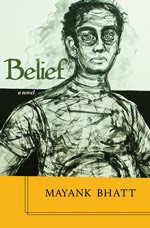The final book continues the intertwined stories of the key characters, where all the tables on race and privileged are reversed and a new set of unintended events are set in motion, leading to new and unexpected consequences.
Saturday, November 29, 2014
More Matata - Braz Menezes
Authors like M G Vassanji have brilliantly
covered much of the Asian experience in East Africa. But Goa, now a part of the
cultural mosaic of India for over 50 years, has been somewhat neglected. Portugal
imposed its religion and culture on Goa and its people for over 450 years, creating
a distinct blend of Indo-Portuguese.
Early in the 20th century, the rulers of British East Africa
were desperate for administrators and accountants; bartenders and bakers; cooks
and clerks; musicians and mechanics; engineers and tailors; doctors and
doormats.
The people of Goa fit the bill perfectly and they created no
matata (trouble). They spoke English, wore western attire and drank Scotch
whisky. They played card games and cricket. Although they gyrated to the mando
and dulpod, they also danced the lancers, the waltz and the foxtrot.
They were Catholics and were considered reliable to handle
the public purse strings. They stayed with their faith and never strayed into
politics. They did what they were told and were always loyal and docile. Above
all, when compared to the cost of British labour, they could be had cheap —
very cheap indeed. They flocked to East Africa by the hundreds.
Braz Menezes, the author of More Matata Love after the Mau Mau, says, “When I sat back to reflect and digest the
facts, I decided their story needed to be told: how a small community from Goa,
played an inordinately important and quiet role in the administration and the
services economy of British East Africa. When it was time to leave Kenya, many
went. Others stayed behind in the land they loved. In previous novels by European
authors, especially those set in Kenya, the Goans were merely minor ‘props and
shadows’ in other people’s stories. That is how the Matata Trilogy was born.”
‘Matata’ means trouble in Swahili. The trilogy is set
against the evolving nation of Kenya and the twist and turns that political
decisions taken in London, Lisbon and elsewhere affect everyday life.
The first book, JustMatata – Sin, Saints and Settlers (Matata Books) is from the view point of
a 11-year-old (Lando), a Catholic Goan, trying to understand the dichotomy and
conflicts of his parents' and community culture (Catholic-Portuguese India) and
the different realities in Kenya, with its entrenched racial segregation
(colour bar) and religious separation.
For example, Catholic Goans were not allowed in European
Catholic schools, and kids (especially boys) were sent to Jesuit-run boarding
schools from about the age of 10, to complete high school and university in
Goa, Bangalore, Poona and Bombay. They would return to Kenya at age 23,
strangers to their siblings. Fascinating travel by steamship, and very
interesting and poignant account of life in boarding school and clever maneuver
to escape back to Kenya.
More Matata is a continuation of the story by the same narrator (Lando). It
is based on true events, and is a story of a teenage boy growing to manhood, at
the same time as Kenya strives for Independence. It takes place in the early
50s during a brutal struggle, initially by mainly one tribe, the Kikuyu,
against colonial Britain. Schools and residential areas were segregated by race
until 1955. The Mau Mau fighters were driven by British military forces, from
the settler-dominated ‘White Highlands’ first, into ‘African Locations’ in
urban areas, and then, into the servants’ quarters of non-Africans, pursued
relentlessly by security forces.
Lando attends an Indian high school adjacent to the African
areas and later enrolls in the first multiracial college in Kenya. In a chance
meeting after graduation as an architect, he meets the irresistibly beautiful,
biracial, Saboti. The intertwined stories of political and ethnic strife,
cultural differences and forbidden love, are set against the history and
natural beauty of Kenya.
The trilogy – two novels have been published, and the third
is being written – has been a labour of love for Braz. He says, “I took my
first creating writing class at George Brown in 2006 at age 67. I started to
tell another story, instead as I researched events, I got sucked into a bigger
story of how the relatively small community, unwittingly played a key role in
implementing Britain's colonial administration Kenya. I never expected to find
the art writing, so satisfying, absorbing, and yet complicated. I never
expected to have to self-publish, and even less to handle the marketing.”
The final book continues the intertwined stories of the key characters, where all the tables on race and privileged are reversed and a new set of unintended events are set in motion, leading to new and unexpected consequences.
Subscribe to:
Post Comments (Atom)






No comments:
Post a Comment